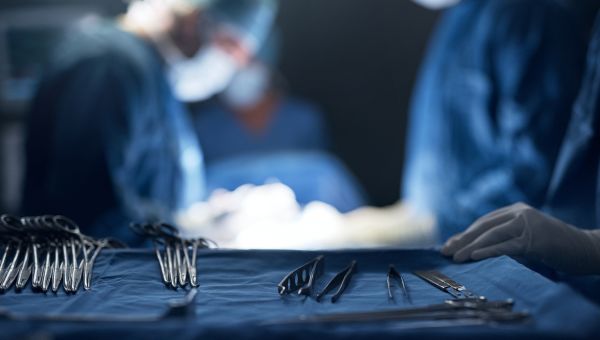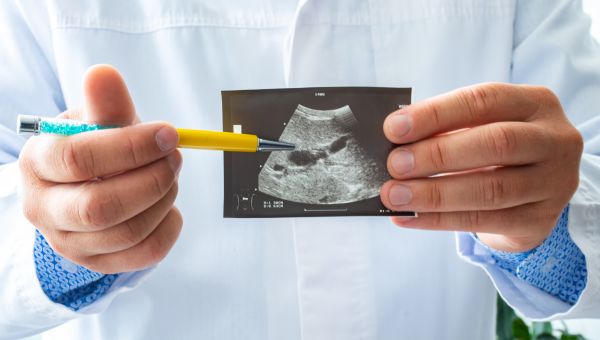7 dangerous emergency surgeries
Some of the most common emergency surgeries can also be the riskiest.

Over half a million Americans undergo emergency general surgery (EGS) every year-- and that can come with serious risks. When researchers looked at national data on EGS, they realized that over 78 percent of complications and over 80 percent of patient deaths were linked to just seven of the procedures, according to a study published in JAMA Surgery.
“Now that we have… Show More
Over half a million Americans undergo emergency general surgery (EGS) every year-- and that can come with serious risks. When researchers looked at national data on EGS, they realized that over 78 percent of complications and over 80 percent of patient deaths were linked to just seven of the procedures, according to a study published in JAMA Surgery.
“Now that we have this information, it can guide surgeons and hospital administrators trying to improve surgical care. They can focus resources to make the biggest impact,” says Balaguru Sambandam, MD a general surgeon at the Medical City Alliance in Fort Worth, Texas.
Here are the top seven riskiest surgeries.
Show Less
Partial colon removal
A partial colectomy involves taking out part of your colon because of a serious infection, a tumor, bleeding or inflammation. You might need this procedure if you have a condition like colon cancer or Crohn’s disease, an immune system disorder that affects the gut.
Infections are a common… Show More
A partial colectomy involves taking out part of your colon because of a serious infection, a tumor, bleeding or inflammation. You might need this procedure if you have a condition like colon cancer or Crohn’s disease, an immune system disorder that affects the gut.
Infections are a common complication of this surgery, says Dr. Sambandam. To prevent infections, follow your post-op wound care instructions and use the special medicated soap that you’re prescribed. Tell your doctor if you develop any of these symptoms as they can signal an infection:
- Fever
- Wound becomes painful
- Wound starts to smell

Small bowel removal
You may need a small bowel resection, or surgery to take out part or all of your small intestine if it becomes sick or blocked due to:
- Cancer
- A hernia
- An infection
“Typically, this surgery—along with many of the surgeries on this list—is not terribly complicated. But if you have other medical… Show More
You may need a small bowel resection, or surgery to take out part or all of your small intestine if it becomes sick or blocked due to:
- Cancer
- A hernia
- An infection
“Typically, this surgery—along with many of the surgeries on this list—is not terribly complicated. But if you have other medical conditions like diabetes, high blood pressure or if you're a smoker, you’re more likely to have complications afterwards,” says Dr. Sambandam.
People who are obese or who have diabetes are at a higher risk of their wounds opening up again after surgery. Keep that from happening by carefully following your doctor’s instructions for wound care, lifting and safe activities.
Show Less
Appendix removal
If your appendix becomes infected, you’ll most likely need an appendectomy, or surgery to remove it. This procedure can save your life by preventing the small organ from bursting and leaking infected liquid into your abdomen.
This is another surgery that’s not too complicated on its own and most… Show More
If your appendix becomes infected, you’ll most likely need an appendectomy, or surgery to remove it. This procedure can save your life by preventing the small organ from bursting and leaking infected liquid into your abdomen.
This is another surgery that’s not too complicated on its own and most people can go home from the hospital after one or two days. However, you may take longer to recover if your appendix bursts before it can be removed or if you have a medical condition that increases your risk of complications like a bleeding disorder.
Show Less
Gallbladder removal
Your gallbladder sits below your liver and releases bile, a liquid that helps your body digest fats. Sometimes the contents of bile, like cholesterol and bilirubin, clump together to form gallstones. Gallstones may block the channel that sends bile into your digestive system, potentially causing… Show More
Your gallbladder sits below your liver and releases bile, a liquid that helps your body digest fats. Sometimes the contents of bile, like cholesterol and bilirubin, clump together to form gallstones. Gallstones may block the channel that sends bile into your digestive system, potentially causing problems like:
- Pain
- An infection
- Damage to your liver or pancreas
Most likely, you’ll need gallbladder removal surgery to treat your gallstones.
Working closely with your family doctor to lose weight and manage other conditions can lower your risk of gallstones—doing so will also decrease your chances of having a complication after any of the surgeries on this list.
Show Less
Surgery to fix a peptic ulcer
A peptic ulcer is a sore that forms when acid from your stomach wears away at the lining of your esophagus, stomach or small intestine. An ulcer can develop if you overuse NSAID drugs, which include pain medications like Ibuprofen. The stomach bacteria, H. pylori, is another cause of peptic ulcers.… Show More
A peptic ulcer is a sore that forms when acid from your stomach wears away at the lining of your esophagus, stomach or small intestine. An ulcer can develop if you overuse NSAID drugs, which include pain medications like Ibuprofen. The stomach bacteria, H. pylori, is another cause of peptic ulcers. If left untreated, an ulcer can become infected or bleed.
If you experience these symptoms, get tested for an ulcer. You may need antibiotics to treat H. pylori or medication to control your stomach acid like Prilosec or Protonix. These drugs have been game changers, says Dr. Sambandam. Taking the right meds, stopping NSAIDs and seeing your doctor regularly may help you avoid surgery.
Show Less
Surgery to remove intestinal scars
A peritoneal adhesion is a scar that forms between your intestine and the inside lining of your abdomen—it’s also possible to form an adhesion between other organs. The scar may form after a prior surgery or radiation treatment. It can become life threatening if it causes a bowel blockage or stops… Show More
A peritoneal adhesion is a scar that forms between your intestine and the inside lining of your abdomen—it’s also possible to form an adhesion between other organs. The scar may form after a prior surgery or radiation treatment. It can become life threatening if it causes a bowel blockage or stops the blood supply to your intestines.
If you have a history of abdominal surgery, tell your doctor if you experience abdominal pain, bloating, vomiting or constipation since these can signal a bowel blockage.
If you need surgery to treat an adhesion, your surgeon will cut the scar, detaching your intestine from the spot it’s anchored to on your abdominal wall.
Show Less
Surgery to locate the source of another problem
Surgeons might perform a laparotomy if they need to find the source of abdominal pain or an explanation for another problem you’re having. There are many possible conditions that a laparotomy might reveal. Some examples include:
- Inflammation of the pancreas, or pancreatitis
- Cancer of the liver or … Show More
Surgeons might perform a laparotomy if they need to find the source of abdominal pain or an explanation for another problem you’re having. There are many possible conditions that a laparotomy might reveal. Some examples include:
- Inflammation of the pancreas, or pancreatitis
- Cancer of the liver or pancreas
- Gallstones or an appendix infection
- Internal bleeding
This surgery is associated with a high risk because doctors don’t know what they’re going to find when they open you up. They may discover damage that’s very severe or completely beyond repair.
Show Less
Taking care of yourself after surgery
Take these steps to lower your risk of complications after any operation:
Take these steps to lower your risk of complications after any operation:
- Prevent blood clots by walking as soon as possible afterwards and by wearing compression stockings to keep the blood flowing in your legs.
- Avoid pneumonia by taking deep breaths to expand your lungs every hour. Ask your nurse for an incentive spirometer, or a device that measures the size of your breaths and can encourage you to breathe deeper.
- Wash your hands with soap before touching your wounds and follow your doctor’s instructions for wound care to keep infections at bay.
More On


video


video


video


video
